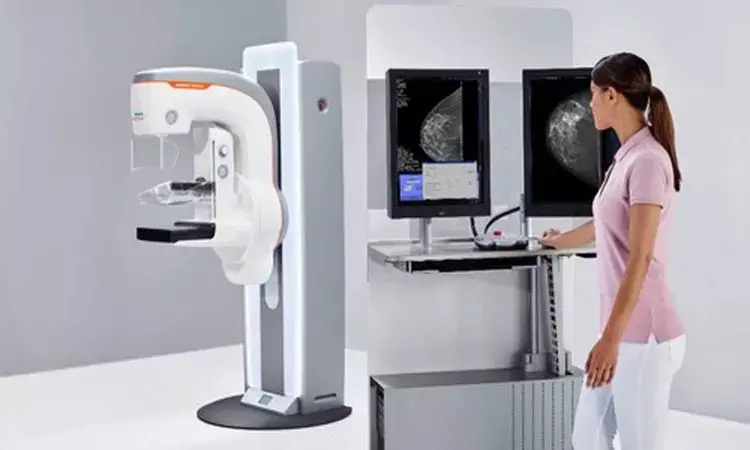- Home
- Medical news & Guidelines
- Anesthesiology
- Cardiology and CTVS
- Critical Care
- Dentistry
- Dermatology
- Diabetes and Endocrinology
- ENT
- Gastroenterology
- Medicine
- Nephrology
- Neurology
- Obstretics-Gynaecology
- Oncology
- Ophthalmology
- Orthopaedics
- Pediatrics-Neonatology
- Psychiatry
- Pulmonology
- Radiology
- Surgery
- Urology
- Laboratory Medicine
- Diet
- Nursing
- Paramedical
- Physiotherapy
- Health news
- Fact Check
- Bone Health Fact Check
- Brain Health Fact Check
- Cancer Related Fact Check
- Child Care Fact Check
- Dental and oral health fact check
- Diabetes and metabolic health fact check
- Diet and Nutrition Fact Check
- Eye and ENT Care Fact Check
- Fitness fact check
- Gut health fact check
- Heart health fact check
- Kidney health fact check
- Medical education fact check
- Men's health fact check
- Respiratory fact check
- Skin and hair care fact check
- Vaccine and Immunization fact check
- Women's health fact check
- AYUSH
- State News
- Andaman and Nicobar Islands
- Andhra Pradesh
- Arunachal Pradesh
- Assam
- Bihar
- Chandigarh
- Chattisgarh
- Dadra and Nagar Haveli
- Daman and Diu
- Delhi
- Goa
- Gujarat
- Haryana
- Himachal Pradesh
- Jammu & Kashmir
- Jharkhand
- Karnataka
- Kerala
- Ladakh
- Lakshadweep
- Madhya Pradesh
- Maharashtra
- Manipur
- Meghalaya
- Mizoram
- Nagaland
- Odisha
- Puducherry
- Punjab
- Rajasthan
- Sikkim
- Tamil Nadu
- Telangana
- Tripura
- Uttar Pradesh
- Uttrakhand
- West Bengal
- Medical Education
- Industry
Breast screening: Digital mammography no good than film

Australia: The transition from film to digital mammography did not result in health benefits for screened women, a recent study in the Journal of the National Cancer Institute has revealed.
According to the study, the increase in the detection of cancer following the shift to digital mammography did not lead to a reduction in the interval cancer rate. Moreover, recall rates also increased.
Breast screening programs replaced film mammography with digital mammography. The effects of this practice shift in screening on health outcomes can be measured through an examination of interval cancer and cancer detection rates.
Rachel Farber, University of Sydney, New South Wales, Australia, and colleagues undertook a systematic review and random-effects meta-analysis. even databases were searched for publications that compared film to digital mammography within the same population of asymptomatic women and reported cancer detection and/or interval cancer rates. A total of 24 studies with 16,583,743 screening examinations (10,968,843 film and 5,614,900 digital) were included.
Key findings of the study include:
- The pooled difference in cancer detection rate showed an increase of 0.51 per 1,000 screens, greater relative increase for DCIS (25.2%) than invasive (4%), and a recall rate increase of 6.95 per 1,000 screens after the transition from film to digital mammography.
- Seven studies (80.8% of screens) reported interval cancers: pooled difference showed no change in interval cancer rate with -0.02 per 1,000 screens.
- Restricting the analysis to studies at low risk of bias resulted in findings consistent with the overall pooled results for all outcomes.
"This analysis reinforces the need to carefully evaluate effects of future changes in technology, such as tomosynthesis, to ensure new technology leads to improved health outcomes and beyond technical gains," concluded the authors.
The study, "Impact of Full-Field Digital Mammography versus Film-Screen Mammography in Population Screening: a Meta-analysis, is published in the Journal of the National Cancer Institute.
Dr Kamal Kant Kohli-MBBS, DTCD- a chest specialist with more than 30 years of practice and a flair for writing clinical articles, Dr Kamal Kant Kohli joined Medical Dialogues as a Chief Editor of Medical News. Besides writing articles, as an editor, he proofreads and verifies all the medical content published on Medical Dialogues including those coming from journals, studies,medical conferences,guidelines etc. Email: drkohli@medicaldialogues.in. Contact no. 011-43720751


